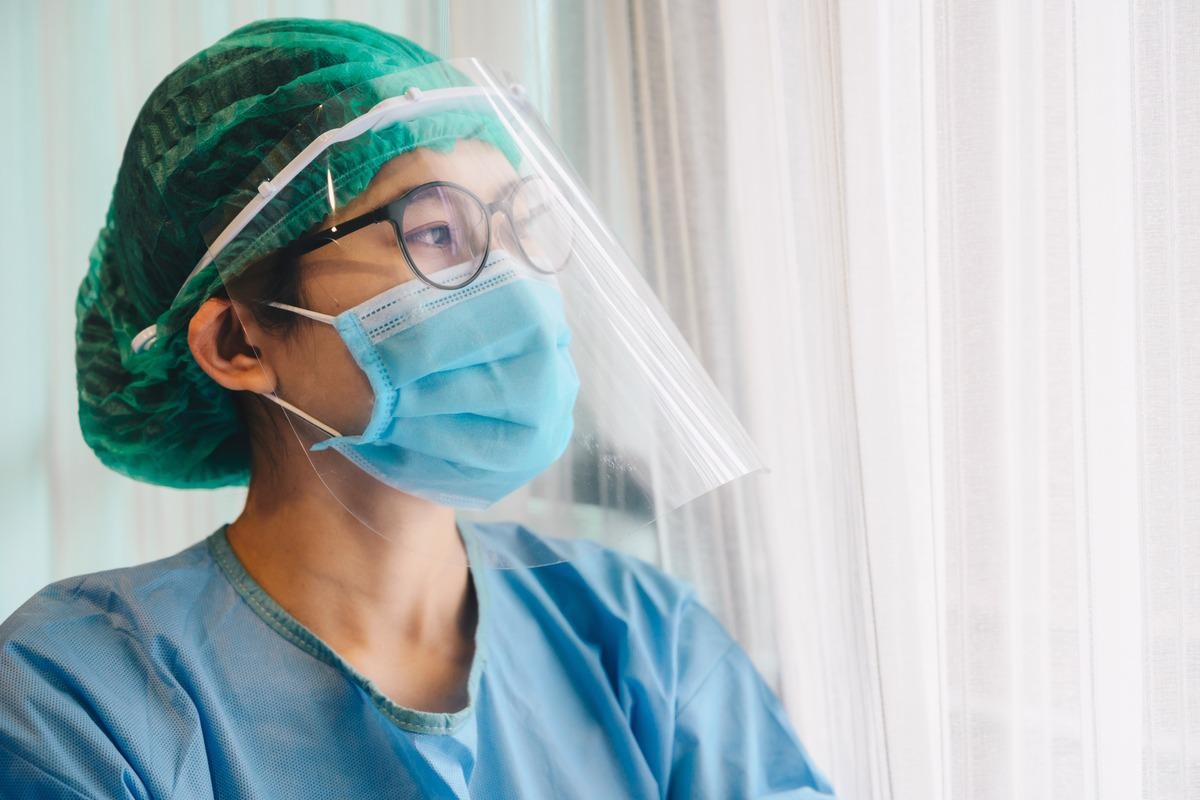Healthcare services worldwide have been suffering under increased burdens since the coronavirus disease 2019 (COVID-19) pandemic first arose in Wuhan, China. While many countries worked to prevent transmission from rising, there was no vaccine available and few treatments.
Healthcare workers (sometimes called frontline workers) were the most at risk, and when a vaccine was developed, most governments prioritized healthcare workers. Researchers from the University Of Southern California have been examining the effect of vaccination on the time it takes healthcare workers to return to work following infection with severe acute respiratory syndrome coronavirus 2 (SARS-CoV-2).
 Study: Healthcare workers benefit from second dose of COVID-19 mRNA vaccine: Effects of partial and full vaccination on sick leave duration and symptoms. Image Credit: Boyloso/Shutterstock
Study: Healthcare workers benefit from second dose of COVID-19 mRNA vaccine: Effects of partial and full vaccination on sick leave duration and symptoms. Image Credit: Boyloso/Shutterstock

 This news article was a review of a preliminary scientific report that had not undergone peer-review at the time of publication. Since its initial publication, the scientific report has now been peer reviewed and accepted for publication in a Scientific Journal. Links to the preliminary and peer-reviewed reports are available in the Sources section at the bottom of this article. View Sources
This news article was a review of a preliminary scientific report that had not undergone peer-review at the time of publication. Since its initial publication, the scientific report has now been peer reviewed and accepted for publication in a Scientific Journal. Links to the preliminary and peer-reviewed reports are available in the Sources section at the bottom of this article. View Sources
A preprint version of the study is available on the medRxiv* server while the article undergoes peer review.
The study
The researchers examined data from clinical and non-clinical healthcare workers at two large hospitals and multiple outpatient clinics, and other facilities. All of these workers were vaccinated with the Pfizer-BioNTech vaccine between December 2020 and July 2021. These healthcare workers were tested weekly for COVID-19 and further tested whenever they showed symptoms or had been exposed to an infected individual.
Those who tested positive for the disease were interviewed immediately and then three to four times weekly by phone or tests to assess their fitness to return to work, following a minimum quarantine of 10 days with at least 24 hours of minimal to no symptoms. The questionnaire included age, sex, ethnicity, vaccination status, and presenting symptoms. The researchers also collected data on the number of days between the initial symptom onset/positive test date and the first day back at work following recovery.
Healthcare workers who took over 100 days to return to work were excluded, as these were generally representative of special circumstances unrelated to their illness. The researchers used bivariable analysis to compare fully vaccinated, partially vaccinated, and unvaccinated individuals with their return-to-work days and demographics. Multiple regression analyses were used to determine the association or lack thereof between vaccination status and return to work days, controlling for demographic variables. The chi-squared analysis compared the symptoms experienced by each group.
In total, the scientists found that 1,030 healthcare workers tested positive over the analysis, 78 of which were excluded due to various factors. This resulted in 811 unvaccinated healthcare workers, 116 partially vaccinated and 25 fully vaccinated. The mean return-to-work time was 18.49 days. The groups did not differ significantly by age or sex, but fully vaccinated individuals were less likely to be vaccinated.
After controlling for demographic factors, fully vaccinated individuals showed the shortest return to work time at 10.9 days, only slightly longer than the mandated minimum. Partially vaccinated healthcare workers were also more likely to return quicker than unvaccinated workers, at 15.5 days compared to 18.0 days. Demographic factors did not affect return-to-work days. Vaccinated individuals were most likely to be asymptomatic and nasal, and coughs became more likely the less vaccinated the individual.
This study was performed before the Delta variant became the most common new infection in the U.S. The Delta variant is significantly more likely to cause vaccine breakthrough infections, and it is unclear how drastically this could have changed the results of the study.
However, the results demonstrate that vaccination significantly affects the amount of time required to return to work following COVID-19 infection. This benefits healthcare workers' health, financial security, and fitness and lowers the overall burden on healthcare facilities. Longer return to work times requires organizations to hire temporary replacements – which can often cost more than more experienced workers, as the time taken to train them can hinder efficiency. Hospitals with extensive sickness among their staff have significantly reduced capacity.
Conclusion
The authors highlight that these benefits are significant and urge the consideration of the implications of this research on public health, health institutions, and the burden placed on the healthcare system as a whole. As cases begin to rise again, some European countries are considering or have already entered into another lockdown, and the Delta variant is considerably more virulent than wild-type SARS-CoV-2. Prioritizing vaccinating healthcare workers could save a significant amount of lives.

 This news article was a review of a preliminary scientific report that had not undergone peer-review at the time of publication. Since its initial publication, the scientific report has now been peer reviewed and accepted for publication in a Scientific Journal. Links to the preliminary and peer-reviewed reports are available in the Sources section at the bottom of this article. View Sources
This news article was a review of a preliminary scientific report that had not undergone peer-review at the time of publication. Since its initial publication, the scientific report has now been peer reviewed and accepted for publication in a Scientific Journal. Links to the preliminary and peer-reviewed reports are available in the Sources section at the bottom of this article. View Sources